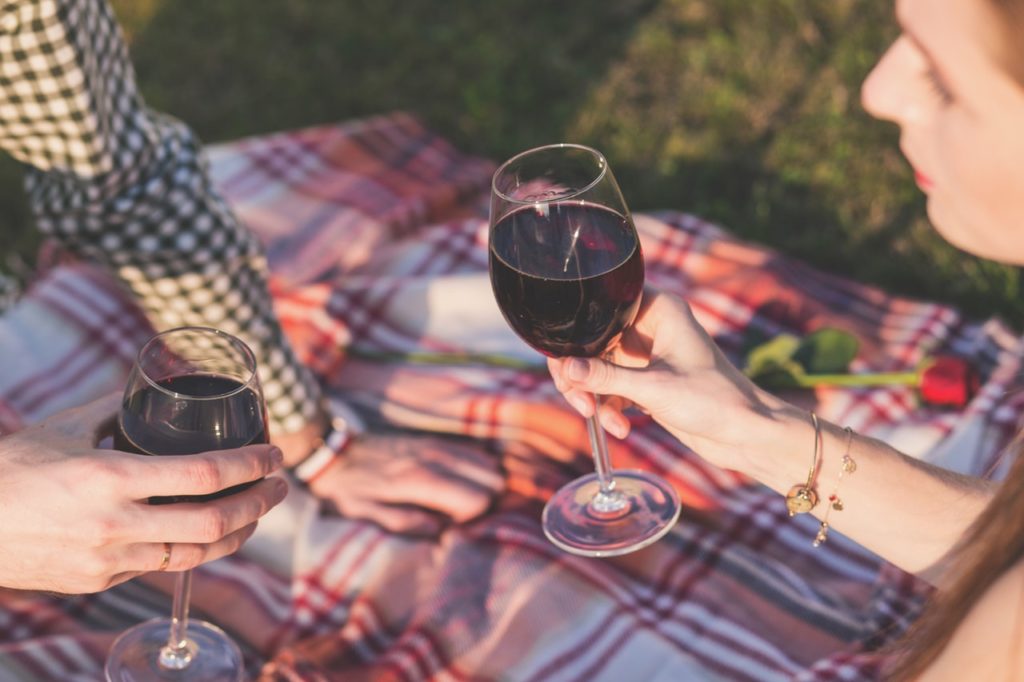When my marriage was falling apart, my former husband and I went to marital counselors to help us. The first one was useless. The second one patiently listened to our story, one that included infidelity — how common! — and keep saying, “OK, but let’s talk about the drinking.” My former husband didn’t want to go to her anymore (he didn’t want to talk about the drinking, of course!) and so after a few sessions we found someone else. But she gave me an aha moment I hadn’t considered — “let’s talk about the drinking.” Because I knew booze was a thing; I just didn’t know how big a thing it was for my family, and that it had a name — alcoholism. I went to Al-anon at that therapist’s suggestion, and the stories I heard there were scary and eye-opening. I didn’t want to live like that.
So can we talk about the drinking? 
Because it’s a much bigger story than my story — it’s a lot of people’s stories. I know we have an opioid crisis in America right now, which is heart-
breaking on so many levels; people are dying, towns are being devastated, children are being orphaned. At the same time, there are many more people who drink too much. And while that may not kill as many people, it has consequences, too. On relationships and on children.
I recently spoke with Daphne de Marneffe, a therapist whose just-published book on the challenges of midlife marriage, The Rough Patch: Marriage and the Art of Living Together, has a chapter on booze and other “attempted escapes.” Addressing alcohol isn’t something I’ve typically seen in marital advice books even though I’ve known many people who struggled with that in their marriage, so I was delighted to see that she was calling it out.
‘A central problem’
Couples are often leery of addressing a partner’s drinking — or their own — for a number of reasons, de Marneffe says, often because it’s been the way they’ve coped since they were young. And yet, it often works against everything we most likely want with a romantic partner:
It can also function as a way to take the edge off, yet in my model of how you need to actually show up emotionally if you’re going to have an intimate relationship, it usually works against that. I present it in a very nonjudgmental way, but at the same time in a confrontational way, like, don’t think this is kind of a detail; it’s probably kind of a central problem.”
Yeah. It isn’t “kind of a detail.” It’s totally “kind of a central problem.” You can’t show up emotionally when you’re dulling your emotions.
As I’ve written before, there are many families who are bring destroyed by alcohol. There is a lot of shame around it, and so most of us don’t tell anyone; we suffer in silence.
Drinking your way to divorce
Which is why I struggled silently. Alcohol has broken up a few friends’ relationships in recent years; it’s impacting a few more right now. I’m not surprised that 21 percent of divorced people named alcohol or drug abuse as a reason they split in a 2004 AARP study of midlife divorce. More recent studies indicate when one spouse drinks more than the other, the couple is more likely to divorce — especially if the heavy drinker is the wife (because it goes against — ugh — “proper gender roles for women.”
So, what to do? I knew that my former husband came from an alcoholic family. I wished I had explored that more, understood the imprints and patterns that come with that. I wished I had talked with him about his relationship to booze — why he drank, why he drank so much, what alcohol meant to him, what he was trying to escape from. And I wished I had the curiosity back then to understand why I made excuses for his drinking, why I let it slowly wear away at our life together. And I wish I had the strength much earlier to say what I finally could say after doing lots of personal growth work: “I’m not telling you want to do, but I won’t even consider staying in this marriage if you’re drinking.” I’m happy to say he’s been sober ever since.
As de Marneffe writes:
So much of marriage, and life, is about sitting with uncomfortable feelings and not reaching for the quick fix that won’t work in the long run. This sometimes means confusion, lack of control, or feeling broken before you feel whole. It means understanding ‘not knowing’ as a positive capacity rather than as failure or ignorance. … Once we relinquish our substances, we’ll have to face ourselves before we can discover what’s possible in our relationships.”
Yes, not knowing, sitting with what’s uncomfortable, is essential. And facing ourselves? That’s powerful and scary. But I highly recommend it.
Want to individualize your marriage? (Of course you do!) Then read The New I Do: Reshaping Marriage for Skeptics, Realists and Rebels (Seal Press). You can support your local indie bookstore or order it on Amazon.

















This deserves a much longer conversation than we could have here, but I will say that I wish I knew and understood the ramifications of alcohol abuse much sooner than I did. Addiction to a completely legal substance is the cause of a great deal of misery and dysfunction in our culture. At least there was a ten year period in which she was sober.